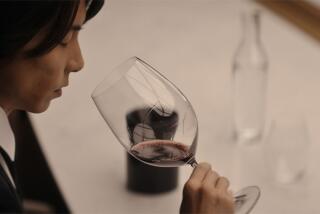Free-Wheeling Western-Style Ads Allowed Now in China
- Share via
PEKING — Zhang Zhongjing tonic wine is really an ideal drink, says the box around its porcelain container. It “keeps well men and women, old and young at all seasons.”
The makers, Nanyang Distillery of Henan province, launched an unusual promotion in Peking in early February, inviting 250 influential guests to a banquet at the Peking Hotel and linking their sales pitch to an exhibition staged at the Chinese Museum of History.
Among those sipping the new wine at the reception were China’s most famous poet, Ai Qing, Communist Party officials Duan Junyi and Li Yimang and the national volleyball coach.
“We want to spread the name of our factory and open up the market, and when it’s ready, we can make a lot of money,” said Li Zengdian, deputy manager of the distillery, in explaining the lavish, hard-sell campaign.
“Anyone drinking this wine will be healthier and happier,” said Li, whose marketing assault on the capital is a product of new commercial freedom in China’s expanding consumer economy.
Advertising was banned as a capitalist gimmick during Mao Tse-tung’s 1966-76 Cultural Revolution, but current leader Deng Xiaoping has unleashed competition in an economic about-face.
Television, radio and billboard advertisements promote headache tablets and washing machines; the party newspaper People’s Daily carries ads for Japanese color televisions and photocopiers.
At 6 yuan--about $2.15--a bottle, the Nanyang wine is up against 100 other brands of tonic in a nation with 300,000 practicioners of traditional herbal medicine and a firm public belief in the effectiveness of such remedies.
More to Read
Sign up for Essential California
The most important California stories and recommendations in your inbox every morning.
You may occasionally receive promotional content from the Los Angeles Times.










